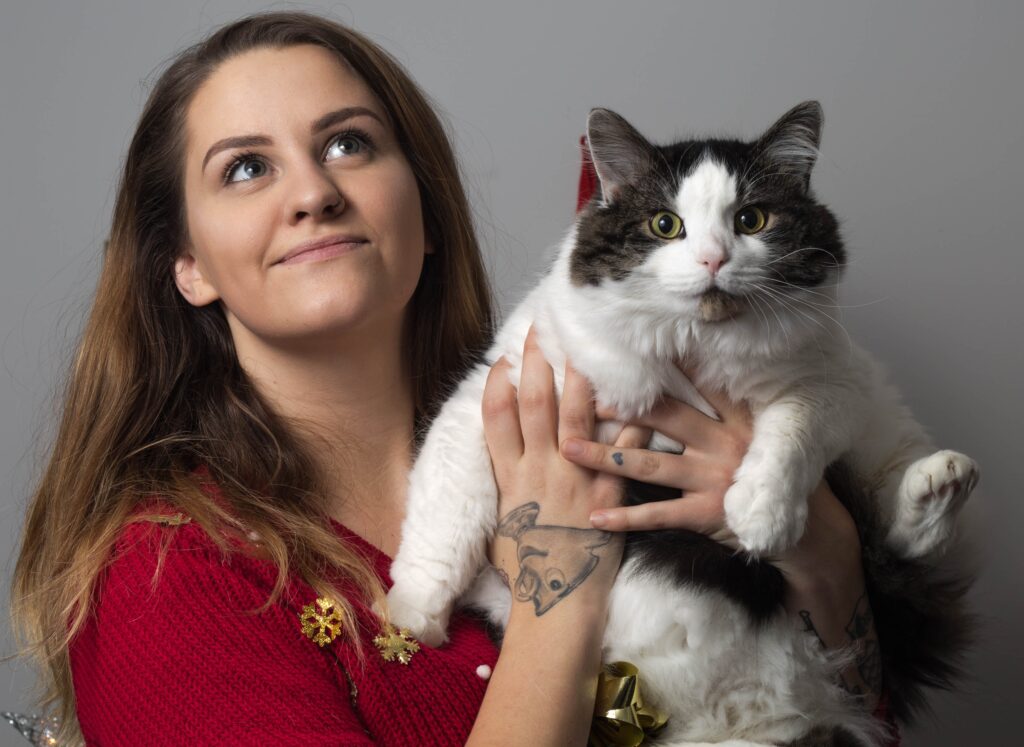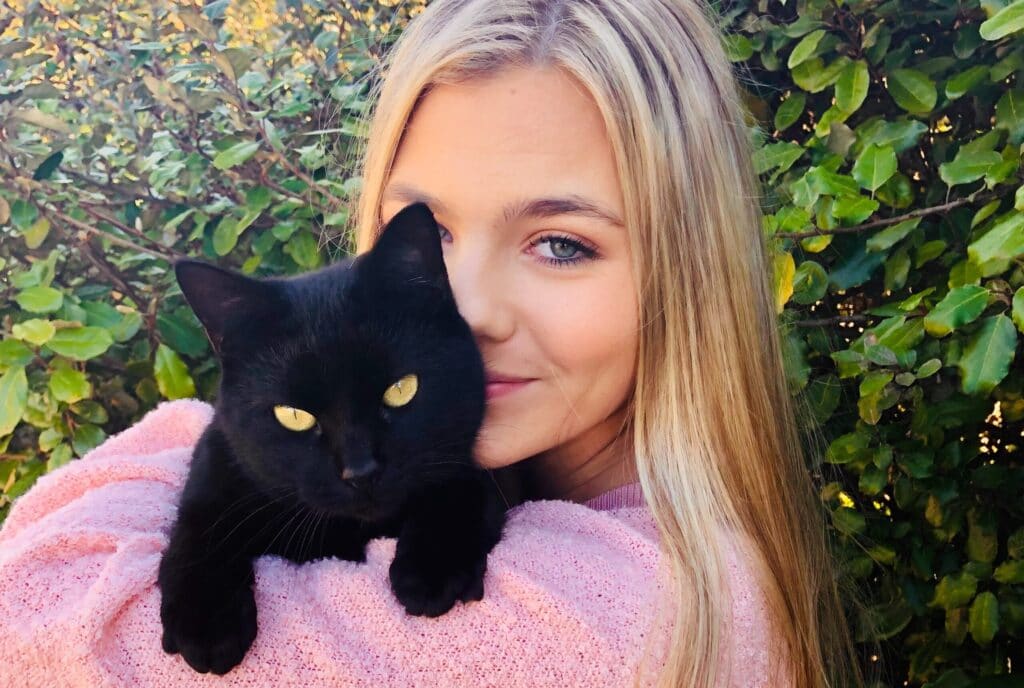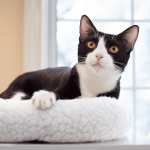Sure enough, the image of a cute furry kitten can melt away any cat lovers right at their first sight. Yet when it comes to adoption, do I dare say to say that you should adopt an adult cat!
Well, yes -absolutely!
Adopting an older cat may be a new start of joy for your family. When you see a senior cat at a shelter or rescue, it’s typically because something occurred to him that he couldn’t prevent. Most senior cats simply want to return to a loving and secure environment. Here are eleven reasons why it’s so great to adopt an adult cat.
Great reasons to adopt an adult cat
1. What you see is what you get
A tiny kitten, in the blink of an eye, can grow up to be a huge Maine Coon, or a long-haired cat while you thought he was short-haired. A cat is completely grown by the age of two, whereas kittens are continually developing and changing. When you adopt an adult cat, there’ll be no surprises in terms of how big your feline will be. You know exactly what you’re getting.
2. You’ll get a feel of an adult cat’s genuine personality
A cat from a shelter may have been through lots of ups and downs. Even though he might be timid at first, it’s possible to get a sense of their personality quite fast. Many kittens, on the other hand, show similar traits when they’re small. An energetic, sociable kitten may turn out to be a couch potato. Or a snuggling kitty today may more independent tomorrow.
Look for a cat who enjoys playing with toys if you want an energetic cat. You’ll want one that cheerfully snoozes if you prefer sluggish kitties. If you’re searching for a lap cat or a cuddler, pay attention to the cat’s reactions when lifted up and held.

3. You’ll have a cleaner cat
Kittens are quite active and enjoy playing with toys and their litter box. That can leave a mess for cleaning up. If you adopt an adult cat, he won’t be into this messy game with the box, so you won’t have to worry about hygiene as much.
Then there’s the issue of self-cleaning: Kittens may need you to clean them with combs and wipes because they don’t lick themselves often. Meanwhile, if you adopt an adult cat, his rough tongue can do a good grooming job.
Diarrhea affects kittens more than older cats, especially those switching foods or newly weaned. Kittens go through dietary changes that older cats don’t go through, which can cause loose stools. Loose stools mean more mess on your kitten’s back and in the litter box, plus odors for you to deal with. Medicating a diarrhoeic kitten can be a a lot of work.
4. Teething isn’t an issue for older cats
Kittens’ baby teeth must fall out before they have their adult teeth. Kittens will chew and teethe on items such as furniture and wires, just like a human child, to help with the elimination of their newborn teeth. In fact, it’s natural for a kitten’s teeth to inflict some damage. Adult teeth have already formed in older cats, so they are teething no more.
5. Adult cats are less troublesome
Kittens, like human children, are more prone to mischief than adults. Kittens are curious and naughty, and they appear to get into situations they shouldn’t, knock things off counter tops, consume non-edible items, and tire you. Older cats sleep more and do not exhaust you as much as kittens do. Older cats are also less likely to file home and pet insurance claims, as well as replace destroyed or eaten household objects.

6. Family with children benefit from older cats
Cats are no exception to this rule: the smaller something is, the easier it is for a youngster to break. Kittens are more prone to injury than adult cats. Kittens can fall or be dropped, tread on by accident, or be squeezed too tightly in a hug. If you adopt an adult cat, you’ll see that they are tougher, less easily broken by kids, and know how to avoid being stepped on. Kittens are too wiggly to sit still and be stroked. Older cats are frequently better at being touched, which is something youngsters desire to do with a cat.
7. Your resident pets may appreciate adults cats more
If you have an older cat (or dog) and want to find a companion for him or her, another adult cat can be the ideal option. This is because kittens can be very hyperactive. When a new kitten comes into a home, the mess he makes might irritate the resident pet. If you adopt an adult cat with the correct introduction steps followed, he will typically fit in better with a home where the other cats or dogs are also adults or seniors.
8. You might be able to relate to one another
Senior cats in need of a new home have gone through a lot in their lives. It’s possible that you’ve experienced a lot as well. When you adopt an adult cat, it may be comforting in certain cases as you can relate to one another. Both of you may work together to recover from the past and prepare for a future filled with love and adventure.
9. Adults cats have formed healthy habits
Adult cats are less likely to be destructive or disruptive than kittens who are still learning how to behave. To adopt an adult cat is to spend less time teaching and more time getting to know your new friend. If your adult cat has lived inside, he or she will have learned the necessary skills for home living, such as litter box training, either from a former owner or at a shelter. In a multi-cat household, make sure the adopted cat has his or her own litter box, which you should scoop regularly.
10. Older felines will be in better health
Kittens’ immune systems are usually weaker than older cats. The reason is that kittens are still developing critical disease defenses, and their dietary requirements are increasing. Adult felines, with the exception of elderly, are less prone to illness and have a more robust digestive system. You’ll be able to spend more time snuggling and less time fretting because you’ll be making fewer trips to the veterinarian.

11. You may be their last chance to have a home
If you’re still not persuaded that adopting an older cat is a great choice, remember that you could be their only shot at finding a home. Kittens are adorable and can easily adopted. Older cats are less likely to be adopted, and if they don’t find a home, they may end up living out their lives at a shelter or foster home, or perhaps being killed.
It’s typically not the adult cat’s fault if he or she ends up without a family. Sometimes elderly people must live in nursing facilities that do not allow cats, human illnesses such as asthma or allergies make caring for a cat difficult, or the previous owners couldn’t afford to care for a pet. Older stray cats, who may have never had a home before, are also worth considering.
To adopt an adult cat, please visit Petfinder and Adopt A Pet for more information.
If you’re wondering which cat breeds are considered friendliest, here 8 friendly breeds of cats that any families would love to have.







